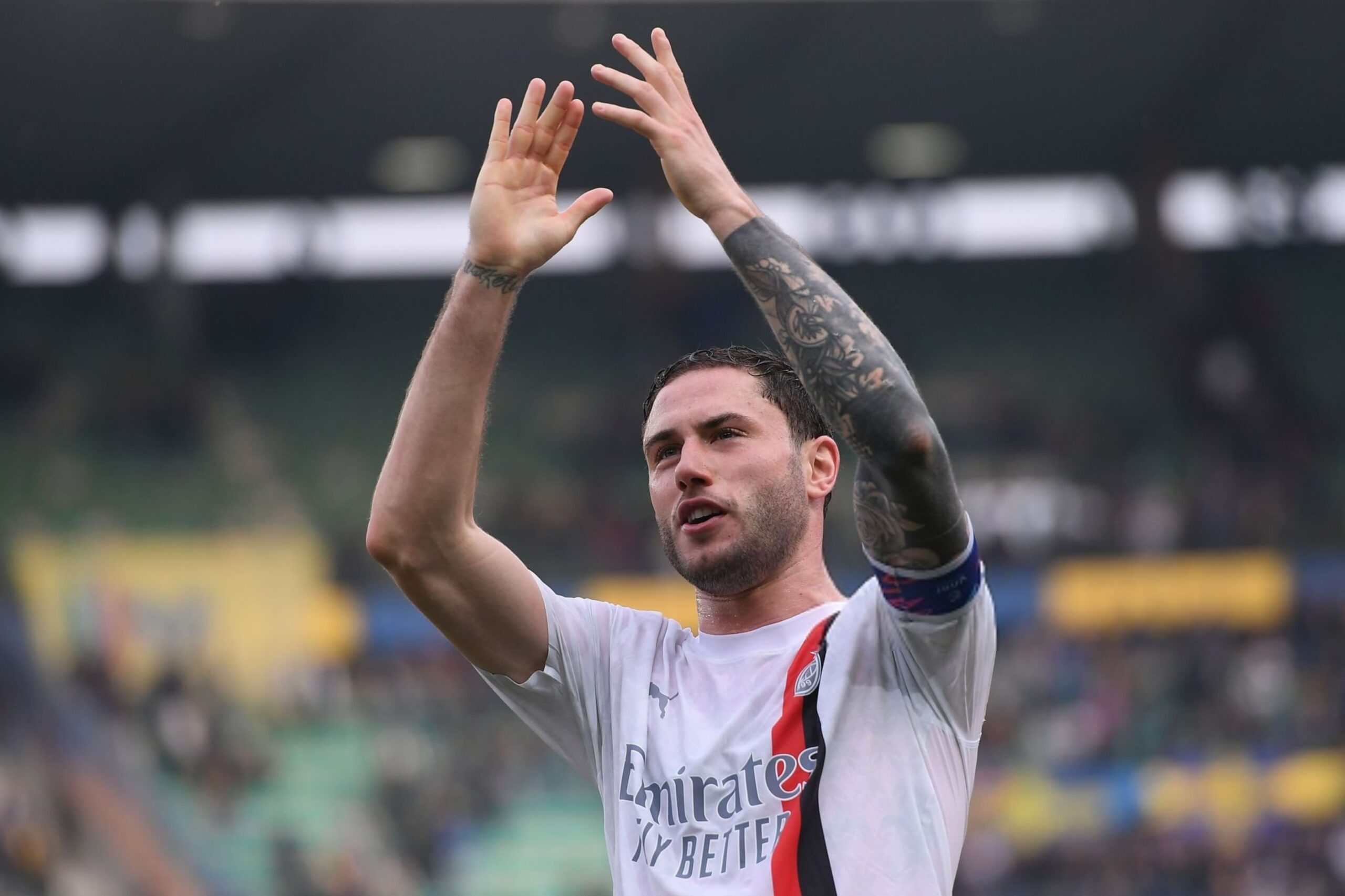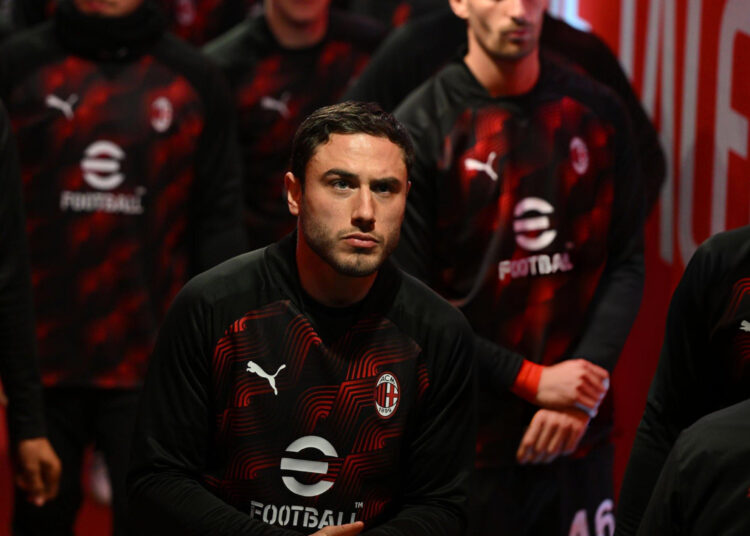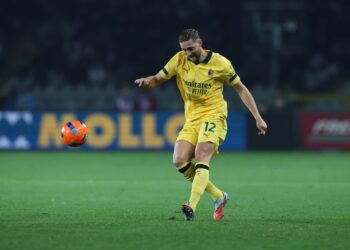AC Milan team captain, Davide Calabria, has granted a lengthy interview that is well worth the read to the microphones of Radio Serie A.
Here are his words:
"Milan's meaning to me as a captain and fan? Everything, it has been my life. I grew up in a Milan-supporting family and went to the stadium before even wearing the shirt. It has been my journey since I was eleven years old. I've been a Milan fan since before, my uncle tried with Juventus but it didn't work. The first time at San Siro? At the age of 6 in the Champions League. It was Ancelotti's Milan, an incredible team: one of the greatest in the history of football. We talked about Milan just enough, we weren't too obsessed because my parents worked a lot. But when there were games during the weekend."
On starting as a midfielder:
"I grew up in the village team and started playing at 5 with friends. I played everywhere, at school and afterwards. I started as a midfielder, at five and then seven. I was better in the middle of the field and I always liked being in the middle, even today."
On the posters he had:
"I had Kakà's photo and a few shirts, not original because we couldn't afford it at the time. Kakà was one of the strongest players in history. He was one of my favourite players along with Sheva. What he did for Milan was truly incredible. Posters help you dream, they inspire you. I had many players at Milan who were inspiring, you could choose one with your eyes closed. Seeing your idols reach those levels gives you something extra to get where I am today."
What was it like when you were little? Calabria said:
"My dad was a bricklayer and my mom was a clerk and then opened a bar. Now I'm here to help. They taught me hard work, facing difficult times even economically. The spirit of sacrifice, dedication, the fact that they gave me their time. My dad was more in the background because of work, my mom was the most fundamental for me and she followed me more often. I think she sacrificed everything for me and my uncle was also very close, the Juventus one (laughs). During middle school, my parents avoided accepting offers from Milan, Atalanta, and Brescia. We decided to make the leap later. The hardship was the early morning journey to Brescia for school and then my mom took me to the minibus that took me to Vismara. The first year was tough but then you start to get used to it."
On difficulties as a boy:
"Yes, the first few months were quite difficult but I was too young and my parents were close to me. Even the period during boarding school, in Primavera, I suffered from being away from home at 16. I didn't want to quit but I was looking for new solutions to feel better: I was suffering at that moment, away from the family. But my parents and friends always supported me. They talked to me and told me it was what I wanted to do: then they always gave me freedom. But it was really my dream: I couldn't and didn't actually want to give up. It seemed like giving up. Tears? Yes, I've always been closed off and immature, crying can help. Instead, I always struggled from this point of view. But I am also super determined to move forward and I didn't feel like crying."
On his dreams, Calabria said:
"My dream was to play in Serie A: I think I even have a letter from somewhere saying I dreamt of playing in the Champions League final... without sounding arrogant, I always believed in it. This thing led me to stand out in the long run compared to other guys who had more talent. Plan B? I had pushed for agricultural school and I've always been passionate about the world of wine. I'm still passionate about it. I knew it was either football or this other path."
Something you had to give up?
"This job gives you a lot emotionally and economically. Obviously, in previous years, I gave up having a teenage life like everyone else, I was limited in that respect. One thing that weighs relatively on me, growing up a bit faster. Only privileges? We have a lot of them but very few people actually get them. I can consider myself lucky but it's not guaranteed that everything will go smoothly. Leaving home early, for example, is not that simple. It's also difficult for a parent."
What did you do with your first salary?
"I started with the minimum. I'm almost sure my mom managed it, definitely a dinner with friends: an outing at my dad's bar. We had a mini party."
The first time at Milan ever:
"The first trial with a friend of mine. Just wearing the shirt for that hour was beautiful. My friend was a goalkeeper and there was always a doubt whether I had scored against him or not, they validated it. They didn't take him: he was very good but a bit short. They didn't take me either at first... We chose to postpone, it wasn't obvious that they could take me back. I had another one at Vismara and they took me."
On the transition to defender:
"I played as a central midfielder in a midfield of three, I didn't play much in the early years: I wasn't too physically big. At 14, with coach Inzaghi, who also out of necessity, moved me to left-back and then I stayed on the right and didn't move. It also helped me to use my left foot: useful as a growth path. I believe that being more diligent tactically is also because I played more roles at that age."
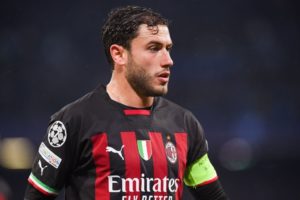
On someone to thank at Milan:
"I would say Inzaghi, who made me a starter and kept me fixed. The switch happened with him and then he made me debut in the first team. I would also say Brocchi because in terms of gameplay, he was very useful practically and tactically intelligent."
On being coached by his idols:
"I have always been someone who doesn't back down. If there are problems, even if the voice rises, it's part of the game. It's a sport where tension and rivalry are created, it's normal to have these moments. I always had a great relationship with Inzaghi and at 16 with a legend like him it's also complicated. A big argument that involved me? Yes, I had more than one. The first, more difficult one, I had with Montella and I don't remember the reason, we were very angry and a bit of tension was created. I take this opportunity to greet him (laughs). It wasn't a pleasant moment but I repeat it happens and it's part of the game: the important thing is to clarify."
You had seven coaches in nine years in the first team...
"The first years in the first team, Milan was different and in a moment of difficulty and change. It was difficult to carry out a path both on a human and professional level. It wasn't a beautiful period for Milan but like in life there are ups and downs. Milan is back and will always rise, as it was in the golden years."
On the Scudetto, Calabria said:
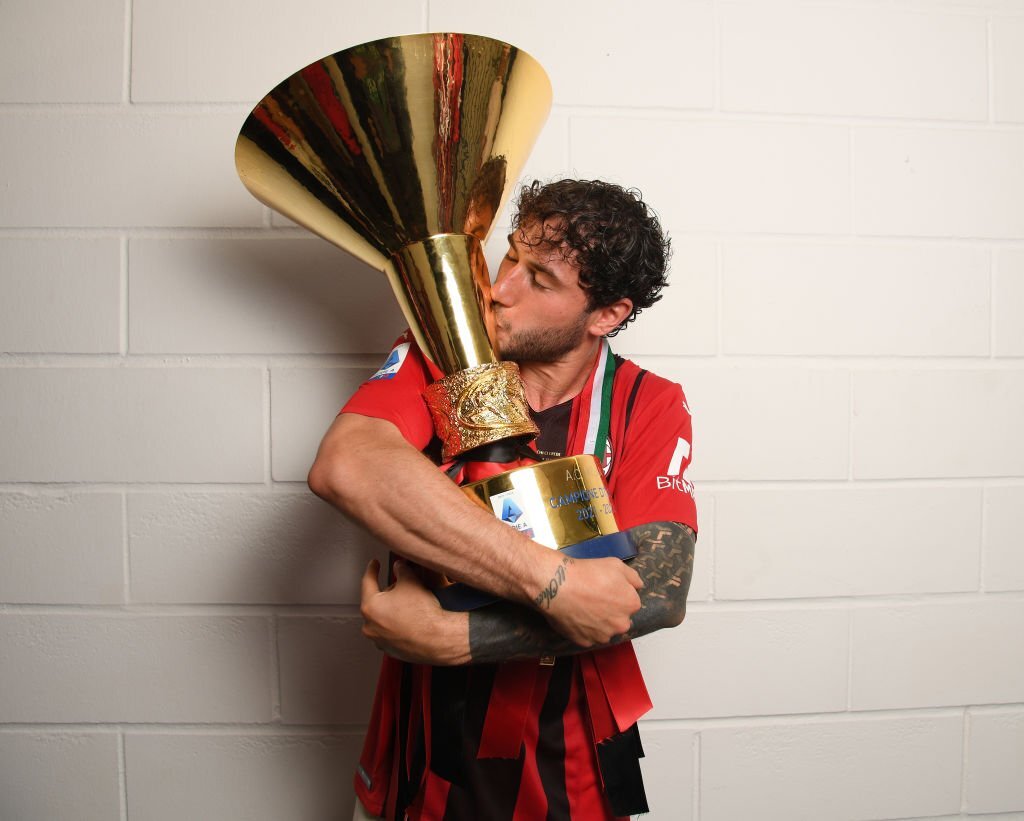
"It was the highest moment. Winning after a period of difficulty, it was a beautiful journey, especially for me coming from the youth sector. A beautiful year also on a human level, beautiful bonds were created with those players. Having the photo here at Milanello was beautiful and I hope to hang more. On a human level, there was a super positive vibe, we all got along well even those who played less, which is fundamental."
On Stefano Pioli:
"Very good at joining in a complicated moment for the team but also for him. This situation brought us even closer: we started in difficulty at first but touching bottom, we had to climb back up with determination. He didn't give up and believed in the work. So did everyone from the first to the last member of the staff, uniting the group that won."
On the flash moment of the Scudetto, Calabria said:
"The first was two years before when we took a beating in Bergamo. But I think there was also the derby with Giroud's brace. But also that rocambolesque match with Spezia, with the disallowed goal. There were several moments: also some confrontations here at Milanello which are fundamental to regroup within a season. It's normal for moments of tension to occur: but we're not talking about punches in the face but a confrontation that brings well-being to the team."
On being the Milan captain, Calabria said:
"The armband absolutely weighs a lot, one of the most important in football. It brings more responsibility from a human point of view, then comes the field. It's crucial to be a great person and be an example or inspiration: from the youngest children to the adults who follow this team and this sport. It gives you weight but it's nice to be able to carry it."
On who wore the armband before him:
"I always think about it. I grew up watching these players. Baresi was one of my father's idols. I played with Paolo Maldini's sons and it was an honour to have met him. I often think about it and it's a great responsibility."
On Paolo Maldini:
"He taught me patience. I always saw him very calm at any moment, with the right attitude and manners. Facing sports, beautiful and ugly moments, with the right maturity."
Do you see yourself at Milan for life?
"I don't think I want to physically be part of it post-career, even though it's still early. For me, this armband and this shirt will always be a part of me. I will always represent Milan, that's also a big responsibility. As a player? Yes, I see myself here, why not? I've never asked myself that question but I grew up here and continuing to be part of this family would make me very happy."
On choosing Leonardo Bonucci for the captain's armband:
"A choice at that moment by the club. Leo has always behaved well with us, always sincere and a super professional. I also had him as a national team mate and I can only speak well of him. I understand that people may have different thoughts but as a human being, he's exceptional, at that moment he put in all the effort he could. These were choices made by other people that mattered relatively to us since we just wanted to row in the same direction."
Do you see yourself in the word "flagbearer"?
"It's strange. Growing up watching so many phenomena... I'm 27 years old and I don't consider myself that old yet even though I've been through a lot with this shirt. I can say yes, if I've stayed here, there's something to it. I can see myself in this term."
Did you ever say a big "no" to staying at Milan?
"No, neither I nor the club had big problems moving forward. We've always been very open to dialogue. Obviously, there were times when we discussed together whether it was necessary to take different paths or not. But in the end, we continued together."
On the best player you've played with:
"I trained with Kakà: one of the idols, finding him in training was fantastic. In terms of pure talent, Menez, being the first year in the first team, had impressed me. I'm not talking about my current teammates, there are many strong ones."
On Rafael Leao:
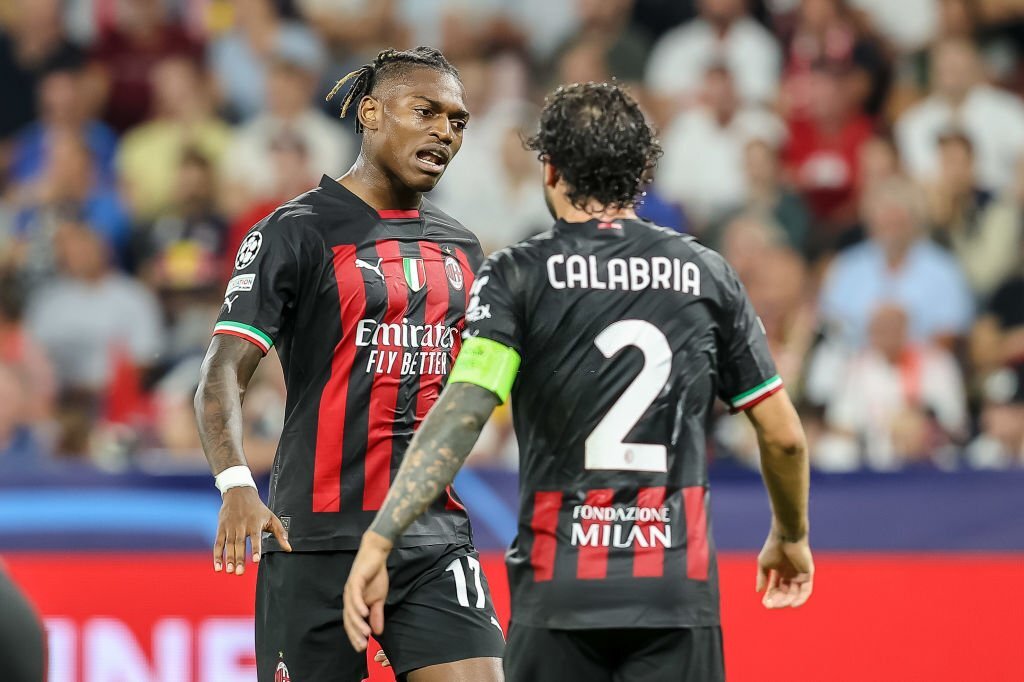
"He has a laugh, the joy of playing. He has innate talent and an extra gear. He just needs to stay calm and then the field speaks for him. As much as he may seem to have fluctuating days, then the numbers speak for him. If he understands the talent he has, he can become one of the strongest players in the world. He's Ballon d'Or material, with those innate physical qualities, I don't see many like him. If he had Mbappè's killer instinct, he can be Ballon d'Or material."
Can this Milan reach the level of the Milan you followed as a child?
"More complicated than in past years. Different economic situations also come into play. But we have shown that even without making pharaonic transfers, we can raise the level year after year. It's more complicated than before and we are behind economically and in terms of image compared to the Premier League. But there's nothing impossible, one day we can get there: I'm super confident."
On second place in the league:
"What we wanted was to win. We must be clear and honest that Inter is having an extraordinary season. We have to be honest with ourselves and everyone and say "well done" for what they are doing. We are doing great in our league, we have the pace of the title race. The goal was to do the best possible and numerically we are doing the best possible."
On Inter winning the Scudetto in the derby:
"It's still early, there are games before, but we want to win them all: so it won't happen."
On the relationship with the national team, only 7 appearances, Calabria said:
"An interesting question. I think sometimes there were injuries just before the national team, I believe coach Mancini made his choices, it wasn't my job to judge them, and then it led him to win the Euros. Mutual love never sparked to create a situation of continuous call-ups. I do my best here and I'm happy here. If the national team comes, I'll be happy."
On Goku from Dragon Ball Z tattoo:
"My dragon is Milan. My wish? To win the Champions League as I said when I was little."
